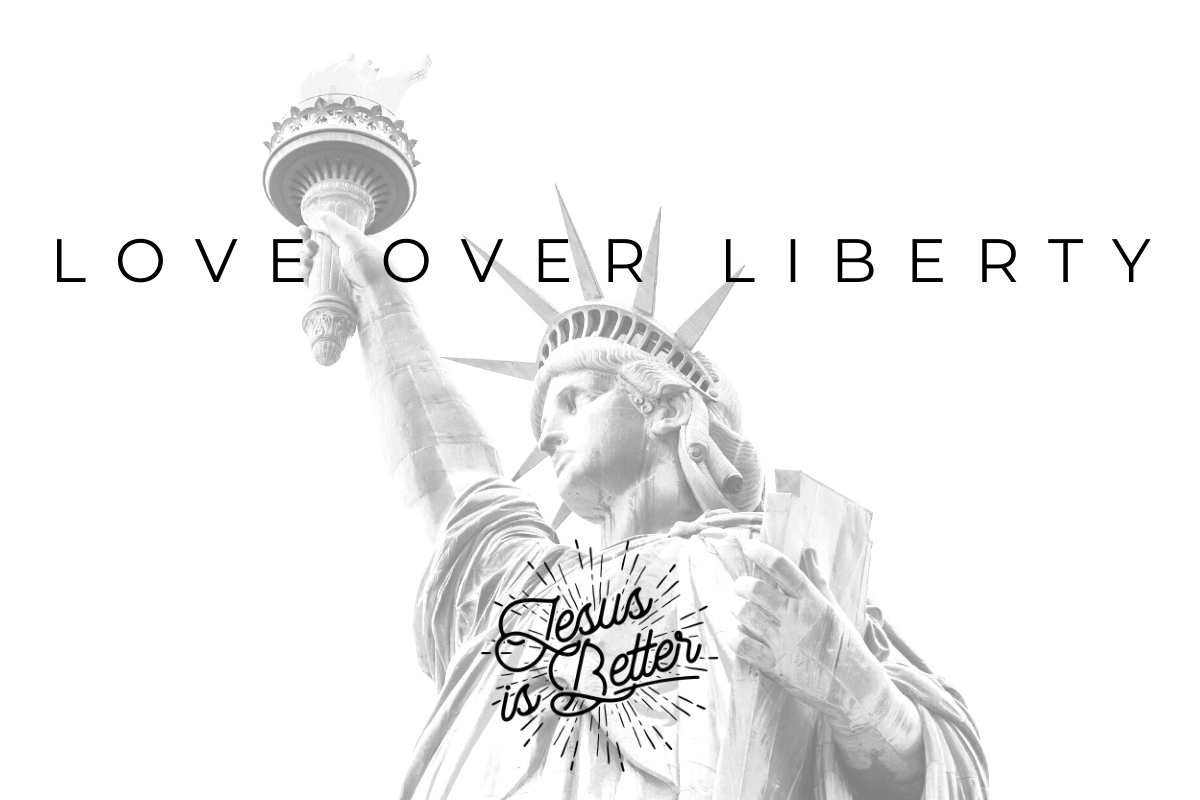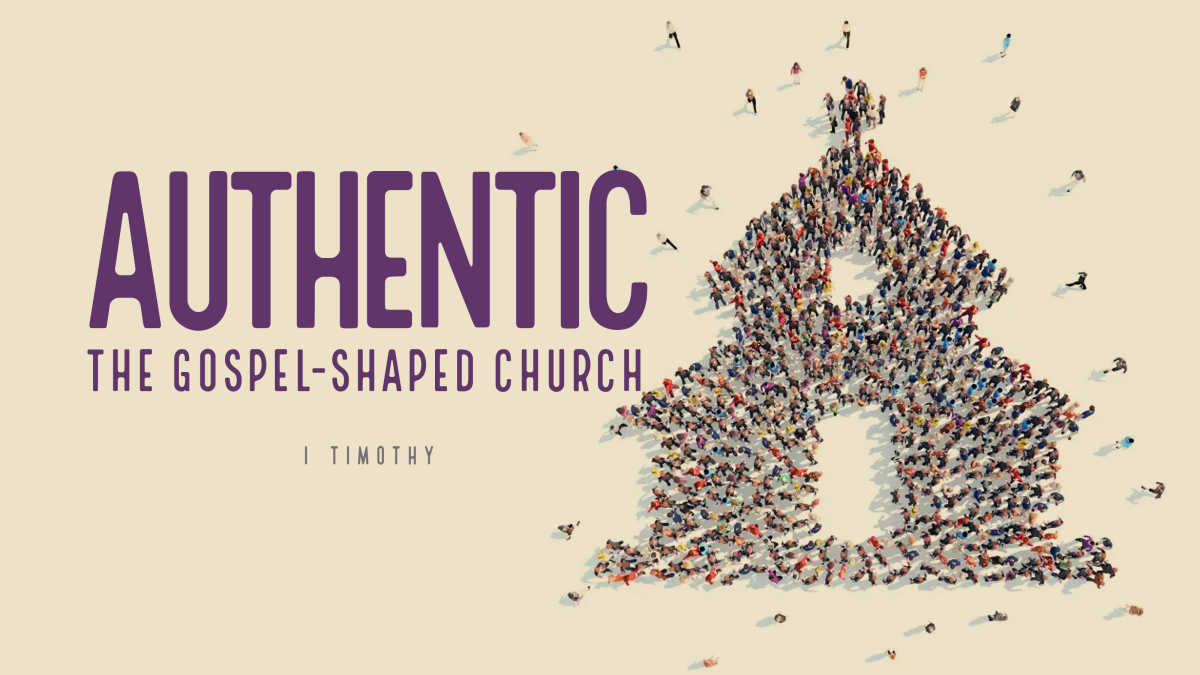Love over Liberty: Being and Belonging to Your Church
Josh Bond, Pastoral Resident at Church on Mill, discusses here the fundamental truths behind how we view church membership. Long time members and those searching for a church alike are well served by the biblical passages he examines.
Imagine you’ve just moved to a new city. You get moved in and settled—maybe start college or the new job you moved into town for. Maybe you get your kids enrolled in school. Sunday rolls around, and it’s time to find a church. Where do you go? What do you look for?
A search on Google Maps will probably show an abundance of churches in your area, but how do you choose between them? Do you vet them by comparing their statements of faith and teachings? Do you compare the quality of music and the friendliness of the people? Do their programs appeal to you? Do the people there look like you? Think like you? Do you ‘click’ with them? Do they seem like people who can help you and your family grow spiritually?
Whether or not you’re in a situation where you’re looking for a church to join, this is a helpful scenario to think through. Our view of why we are at a certain church drastically affects our life as a part of that church, and we’ll likely need to tweak this view regularly throughout our lives.
Some of the items above are important to consider in finding, being, and belonging in a church. We should certainly seek out churches that teach the Bible and preach the gospel. However, if we only consider things like these—things we get from church—we miss the point of what church membership is all about.
Church membership is not a service that we subscribe to, but a household that we move into—and that should shape how we approach life in the church.
Fraught with Freedom
“Give me liberty or give me death!” In America, we sort of have a thing for freedom. We sing songs about freedom, celebrate days about independence, draft bills about rights, and name everything from bells to ladies after Liberty. (One of my favorite historical tidbits is the movement to rename sauerkraut “liberty cabbage” during World War I.)
On a serious note, though, the “American Dream” involves having the freedom and opportunity to build any type of life for yourself that you can dream of, to pursue happiness in any way that you see fit. Our culture values the freedom to pick and choose every aspect of life—from your career to the brand of detergent you use for laundry—in order to live your best life. By the same token, we hate limiting or giving up our freedom. I distinctly remember being a freshman in high school and loathing the fact that I had to go to school precisely because I had no choice not to.
It’s tempting to approach church the same way we approach hobbies, club memberships, or streaming service subscriptions: pick what serves you best, what you can afford, and what you have time for.
But that’s not how the Bible depicts life in the church.
The Law of Love
Two New Testament passages present church life in a way that might be jarring for us: Romans 14:1–15:7, and 1 Corinthians 8–10. If you’re unfamiliar, give them a read.
Both of these passages involve disputes that arose in churches over food offered to idols. Both Rome and Corinth had meat markets selling food sacrificed to idols indiscriminately with regular food. Some Christians said, “We are free in Christ, and false idols have no power, so we’re free to eat anything.” However, others couldn’t eat the meat in good conscience, because they believed it would be sinful to eat food offered to false gods. You can imagine how tense it was when the former group ate the sacrificed meat in front of the latter group who thought it was a sin to eat it!
In mediating these disputes, Paul clarifies that it isn’t sinful to eat sacrificed meat; idols have no power, and Christ does give freedom (Rom 14:14; 1 Cor 8:4–6). However, Paul also says that those whose consciences trouble them should continue refraining from eating the meat.
So then, what about the tension? Today, it wouldn’t be unusual for a church to split over this sort of fork-in-the-road issue. If neither group is wrong, but both are exercising their Christian liberty differently, doesn’t it make sense for them to gather separately? It might seem sensible for one group to leave and form the First Meat-eating Church of Corinth across town from the Corinthian Church of Meat Abstinence. “For why should my liberty be determined by someone else’s conscience?” (1 Cor 10:29).
But that’s not what Paul advises. For him, dividing the church is not an option, because there is one church in Jesus. See Paul’s solutions for the dispute:
Do not, for the sake of food, destroy the work of God. Everything is indeed clean, but it is wrong for anyone to make another stumble by what he eats. It is good not to eat meat or drink wine or do anything that causes your brother to stumble.
—Rom 14:20–21
But if someone says to you, “This has been offered in sacrifice,” then do not eat it, for the sake of the one who informed you, and for the sake of conscience—I do not mean your conscience, but his.
—1 Cor 10:28–29
Paul doesn’t advocate division; he doesn’t even advise that church members “agree to disagree.” No, Paul tells church members to bend over backwards in order to show love to their fellow believers; he tells them to forsake their rights to encourage their brothers and sisters. It was better for the Corinthian and Roman Christians to abstain from eating the meat, not because of anything wrong with the meat, but because abstaining built up their brothers and sisters.
Paul gives the following statements in summary:
We who are strong have an obligation to bear with the failings of the weak, and not to please ourselves. Let each of us please his neighbor for his good, to build him up.
—Rom 15:1–2
“All things are lawful,” but not all things are helpful. “All things are lawful,” but not all things build up. Let no one seek his own good, but the good of his neighbor.
—1 Cor 10:23–24
These two passages insist that for Christians, love is more important than liberty. That idea should transform our approach to church. The church body is not just something we seek to gain from; it’s a body that we join to contribute to, to build up—to belong to. Since we belong to one another in the church, we put love for others over our own freedom.
Oneself and One Another
Salvation is a communal affair. When Jesus saves us, we become citizens of a holy nation (1 Pet 2:9), members of Jesus’ kingdom (Col 1:13), adopted children in God’s household (Rom 8:15), and parts of his body of believers (1 Cor 12:12–13).
If you’re a Christian, Jesus saved you, and he loves you. But he adopted you into his family, and you have siblings. That means that becoming a Christian defines more than just your relationship with God, it also defines your relationship with God’s people. We in the church belong to one another, and so we have family obligations to one another.
Paul’s commands in 1 Corinthians 10 and Romans 14 only make sense in the context of the redeemed people of God living together in Christ by the Holy Spirit. Notice how Paul doesn’t say Christians should choose love over liberty to avoid confrontation. No, Paul prizes love over liberty because love builds up.
Friend, your Christian life isn’t just about you maturing spiritually; it’s about you growing spiritually along with the rest of God’s people. Praise God—you’re called to participate in building up God’s people! Therefore, belonging to a church doesn’t mean receiving ministry from it alone, but also participating in the church’s ministry.
So, how can we put this into practice and build up Jesus’ church?
- Belong to a Local Church
According to Scripture, Christians obediently grow by gathering, worshipping, and laboring for the gospel with fellow believers in a church. We can’t practice the kind of familial love envisioned in 1 Corinthians 10 or Romans 14 if we don’t commit ourselves to deep, intimate church membership. Understand that commitment costs freedom—it means submitting to authority and surrendering resources—but trust that God has your ultimate good in mind when he calls you to commit.
- Love Your Church Sacrificially
Belonging means giving of yourself. Not just money, but time, energy, spiritual gifts, wisdom, love—it may even mean giving up some of your liberties. Who can you love sacrificially? Are there practices in your life that grieve or alienate your brother and sisters? If our hearts truly love our neighbors more than ourselves, it becomes a delight to give up our rights and privileges for the sake of encouraging and building up our brothers and sisters.
- Pray for a Loving, Humble Heart
This sort of self-sacrificing love is not natural to us. By nature, we all seek to please ourselves. By nature, we become suspicious of people who ask us to surrender our rights or give up our autonomy—we fear someone might abuse or take advantage of us. Therefore, pray that the Holy Spirit would soften your heart and reshape it after the pattern of Jesus—who humbled himself to become a man, suffer, and die on our behalf (Phil 1:1–11).
-Josh Bond






